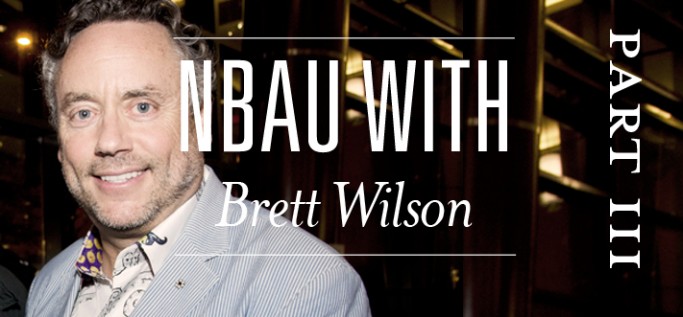
Money, Marketing and Making Shit Happen
This is the final chapter of a three part series from a conversation with iconic Canadian entrepreneur and business maverick, W. Brett Wilson.
I believe in Social Entrepreneurship. I believe (deeply) in the power found at the intersection of doing good and making money. institute B calls this “bridging the chasm between capitalism and activism.” However it’s labeled, the framework and possibilities remain: Why not make the world better and make money at the same time?
Why isn’t it socially acceptable to be a well-off activist?
The skepticism that surrounds social entrepreneurship forbids these syntheses. And like all paradigm shifts, skepticism is what tells us that we’re on the path towards something bigger than ourselves. For example, those who are more comfortable with a traditional model, one that sees capitalism and philanthropy at odds, tend to ask someone like me: ‘why not start a non-profit to address the social and environmental issues you’re passionate about?’ Or ‘why not work for a charity?’ And my personal answer always remains: but how would I nurture my other passion - marketing?
“Marketing Has Been My Point of Differentiation”
“The most valuable class I ever took was called ‘Consumer and Buyer Behaviour,’” explains Brett. Huh? Have you ever heard someone in the finance industry admit to that? But, Brett actually credits his training in marketing as being a major factor in his success. Math and numbers were never an issue for Brett – his skills in this area allowed him “to go toe-to-toe with anyone in finance.” He elaborates, “My point of differentiation in almost everything I’ve done has been built on the backbone of marketing. Whether it’s social media, whether it’s reality TV, whether it’s financing an oil and gas company, whether it’s the strategic use of charity, or building the businesses that I’m involved with, marketing has been my point of differentiation.”
Challenging the Obligation Lexicon
At institute B we talk a lot about ‘embedding generosity’ into business; this is essentially how we believe capitalism can change the world. Depending on your industry, ‘embedding generosity’ can mean a lot of different things. For Brett, it means “when you start to change the world with a word.” That word is opportunity. “I don’t care how people do it, but [giving] is such an incredible opportunity. If we started focusing on how we change the world and the tools that we have to do that with, we pull the words responsibility and obligation out of the lexicon, and substitute them with opportunity and investment. You know, if I think of my charity budget as my investment budget, as opposed to an expense budget, so that investment is on the balance sheet, that changes your perception,” he says. Indeed, how surprising it is that more companies do not embed a culture of giving as a way to invest – in their communities and their reputations.
Philanthropy Alone is Not the Answer
Let’s face it: Social Entrepreneurship is growing, but it’s still a small movement. On the other hand, I would also argue that the Charitable Industrial Complex, as Peter Buffett called it in his now famous NYT piece, must adapt to keep up with the changing times. In other words, philanthropy is, alone, not the answer. So what is the answer to climate change, poverty, pollution, and so on? While some of us struggle to find the answer, and form a cohesive effort, it’s business as usual in many industries and on many continents. Thus, charities exist for a reason.
So here’s the challenge for all activists, no matter what you’re fighting for. Learn and understand the power of marketing. “There’s so many examples of where we can be, I call it ‘entrepreneurial’, in the pursuit of philanthropy. And I also challenge charities to be more entrepreneurial in their acts,” says Brett. Until business and philanthropy become one, charities clearly must put up a better fight – for funding, for talent, for attention. Brett may have an idea for the last one: he wants to do a Dragon’s Den like show, but only for charities – challenging these charities to “understand relevance, and understand the ‘pitch,’” says Brett.
Sounds like the best legacy a Dragon could ever ask for.
Written by, Oona Eager with inspiration from Rik Klingle-Watt.
If you missed parts One and Two, here are the links:
Part One
Part Two

Brett Wilson is far from an activist, he would sell his soul to earn a buck. B corp is loosing credibility. Anyone can be a B Corp if Brett Wilson qualifies - B corp appears to be all about greed - just can’t shake that dis-ease. How many people got cancer caused by Brett Wilson’s business interests? oh but he does good by donating to cancer hospitals - the old -I’ve takenn so much and gotten rich I should give penny’s back
Marketing has been the backbone of my career in the social impact space. Agree that it is essential. Love the idea of a Dragon’s Den for social entrepreneurs (for profits). Unreasonable Institute would be incredible partners along with Ashoka. Ideally the show would “blend value” and offer returns and deep and meaningful impacts. Keen to help.
Donna